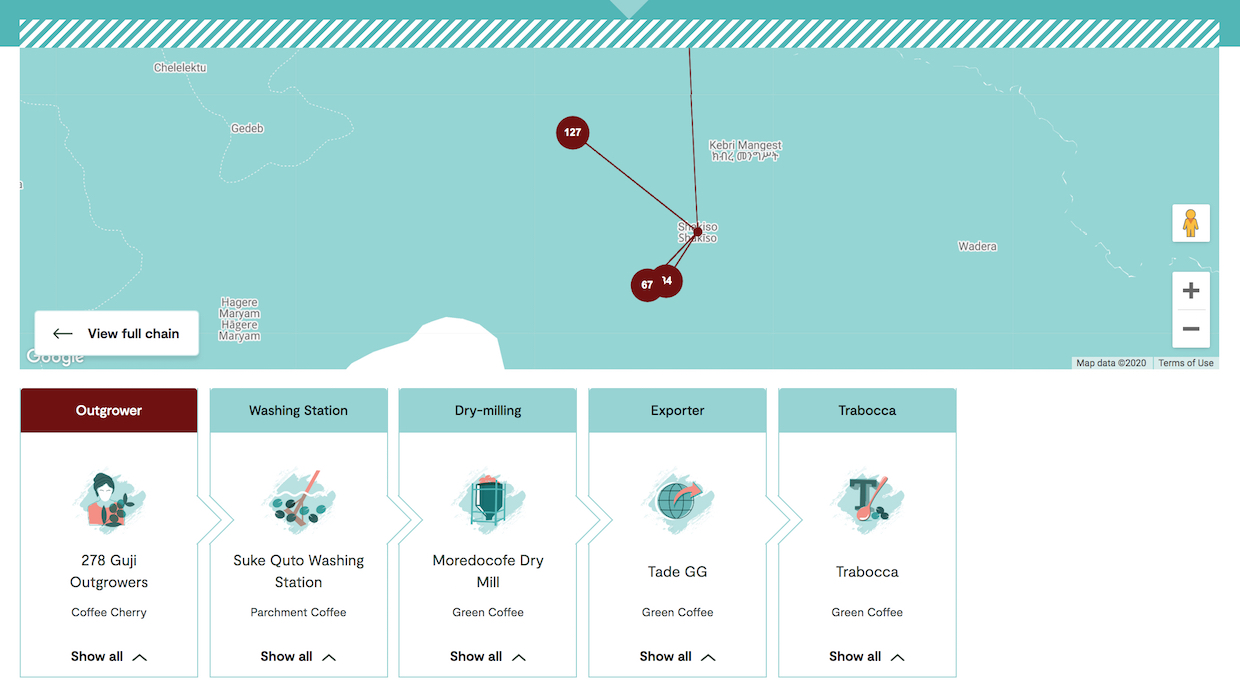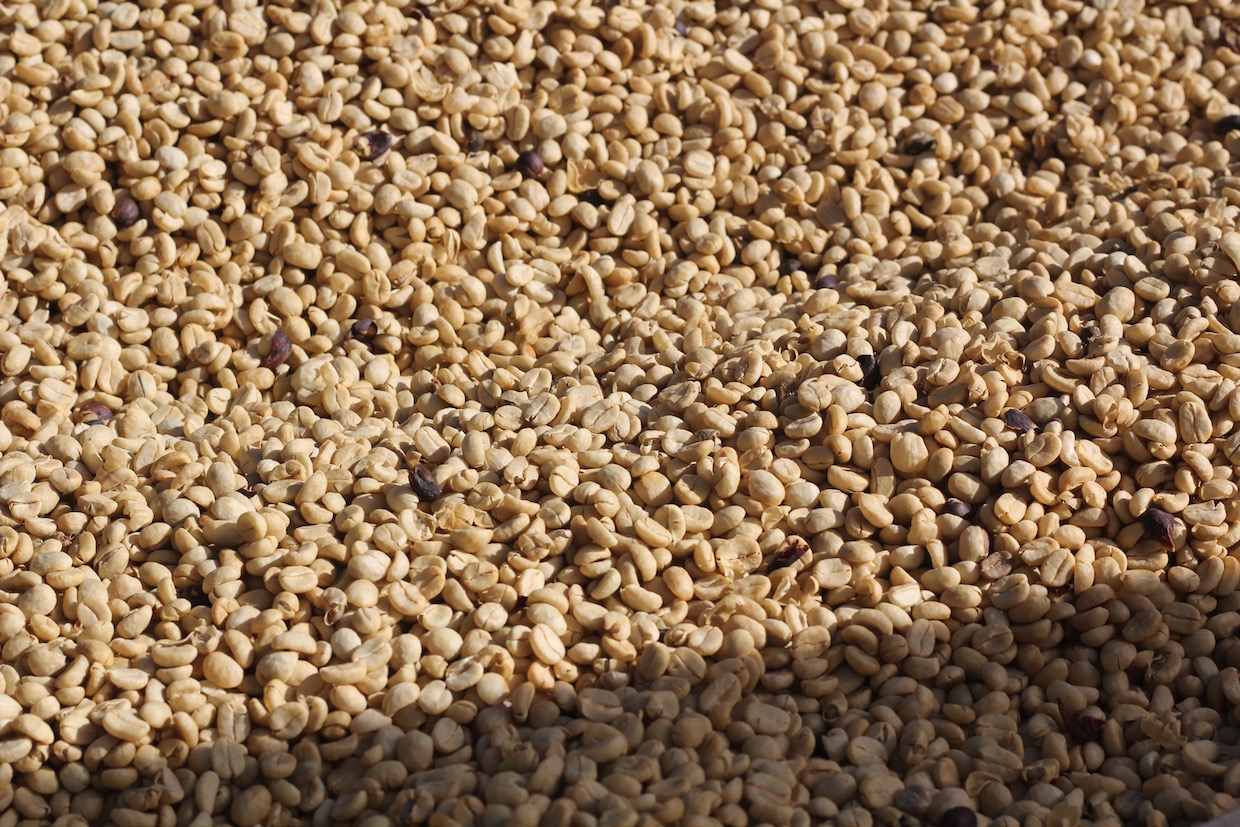Along with a coffee-trading partner in Ethiopia, two Dutch organizations have further pushed the envelope of coffee supply chain transparency through a new platform called Trace.
Created by the nonprofit agri-business solutions provider and equitable trade advocacy group Fairfood, the Trace platform involves blockchain to track coffee purchases back to the individual smallholder farmers, while documenting the coffee’s journey through the supply chain to the green coffee trading company Trabocca.
Trabocca and Fairfood, both based in Amsterdam, just unveiled the first trail of the platform, which involves smallholder coffee farmers, mills, cooperatives and exporters in Ethiopia’s prized Guji region. It shows prices paid to farmers for coffee in cherry form that are nearly three times higher than local market prices, according to Trabocca.
The initial trial led by Trabocca and Fairfood tracked transactions of cherry sales from some 278 smallholders, or “outgrowers,” in Ethiopia. The trading partner in the pilot is Guji’s Suke Quto Washing Station, led by Tesfaye Bekele.

Screenshot from Fairfood’s Trace platform pilot with green coffee importer Trabocca.
After initially attempting to calculate living income requirements for coffee farmers in the region, the transactions ultimately averaged 27 Ethiopian birr (or $0.82 USD) per kilo of coffee in unprocessed cherry form, compared to the local market rate of 10 birr ($0.30). By Trabocca’s calculations, it requires 7 kilos of cherry to produce 1.2 kilos of green, processed coffee and 1 kilo of roasted coffee. Some farmers in the pilot program received $6.30 per kilo ($2.86 per pound) of roasted coffee.
Trabocca’s initial goal was to apply data to ensure that each of the farmers in the supply chain was able to receive a living income, although the data varied so widely — with one family reporting up to 36 members, for example — that solid claims about living income could not necessarily be made.
That said, the company believes the transparency-driven platform could benefit both buyers and sellers interested in promoting equitable trade.
In an announcement May 1, Trabocca Commercial Director Sander Reuderink said, “We opened up an entire supply chain because we believe this is the first step to poverty-free coffee.”
[Editor’s note: An earlier version of this story incorrectly stated that farmers were receiving $6.30 per pound of roasted coffee. It should have stated $6.30 per kilo, which translates to $2.86 per pound.)
Nick Brown
Nick Brown is the editor of Daily Coffee News by Roast Magazine.







Comment